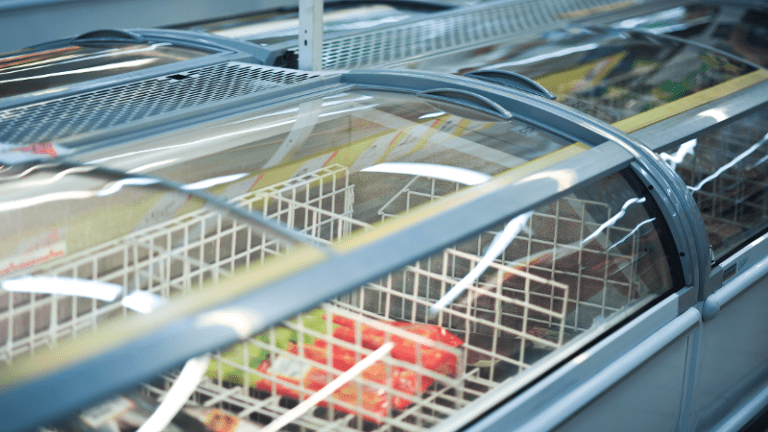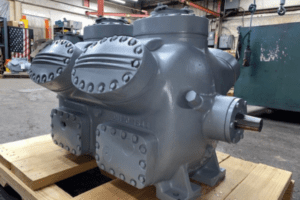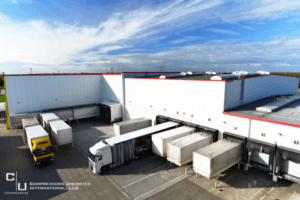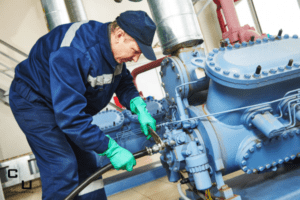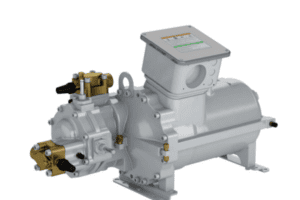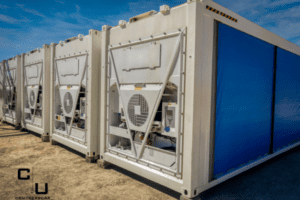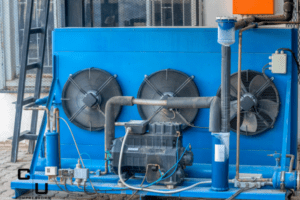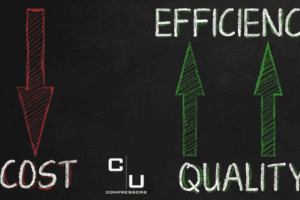Commercial refrigeration systems are the backbone of many small and mid-sized businesses. Even the most modest convenience store or neighborhood grocer fully relies on them. It’s crucial to keep these systems working efficiently to save money and safeguard health.
Most customer-facing businesses that rely on refrigeration find it’s the #1 or #2 cost, matched only by the lights. With that in mind, even a small reduction in refrigeration efficiency would raise your costs. Luckily, there are many factors under your control.
In recent years, companies have explored countless new ways to save money by curbing the burdens of refrigeration and cooling. For instance, they may find ways to recycle waste heat. The less waste heat in the building, the easier it is for refrigeration and cooling systems to maintain their desired temperatures.
Unfortunately, this kind of system may require your building to be completely refitted.
When end-to-end optimization of the space is off the table, you can still save thousands or even millions of dollars every year by being proactive about your commercial refrigeration system maintenance. Just a few hours of maintenance work every week can make a decisive difference.
Let’s take a closer look at the most important steps to take:
Keep Refrigeration Systems Clean and Well Ventilated
Most of today’s refrigeration systems use semi-hermetic compressors that can be easily opened when it is time to perform maintenance. However, this isn’t always the case for smaller units, such as under-bar storage. The smaller the unit, the more likely it is to be fully hermetic.
When a hermetic compressor breaks down, replacement is the only option. Be sure this equipment is kept clean, properly ventilated, and secure. In the event any contaminant infiltrates the unit, you may experience flooding or slugging that can cause significant damage.
Don’t Overload Refrigerated Displays
While walk-in refrigerators are usually designed to be “packed and stacked,” refrigerated displays need a substantial amount of space left over to facilitate proper airflow. When these displays are overloaded, they may not sustain the required temperatures, which can endanger your stock.
Another valuable reason to ensure refrigerated displays aren’t packed too tightly has to do with the public. A frozen pizza might weigh only a few ounces, but you can bet it will result in a screaming fit if it comes flying out and whacks someone on the head. Save yourself the time and potential liability.
De-Ice Units on a Regular Schedule
Even in a 24-hour convenience store, refrigeration units should be emptied out on a regular basis. They need to be totally cleaned and de-iced to prevent the buildup of contaminated ice and the potential mold development that accompanies it.
Most modern grocery refrigeration units have some form of automatic cleaning, but this can’t do the whole job on its own. Startup and shutdown maintenance should be performed twice a year at a minimum. Refrigeration equipment should be disassembled for a full cleaning inside and out.
Monitor Your Refrigeration with Appropriate Building Management Systems
Every kilowatt hour counts, but keeping track of your energy usage can be surprisingly difficult. A unit may vary in its performance and energy draw from season to season, even when it’s a verified Energy Star appliance. You can get a higher-level view with a building management system.
Modern building management systems can fine-tune the lighting and air circulation of an indoor space based on its occupancy. At the same time, their sophisticated sensors deliver a much more granular and accurate reading of how individual devices contribute to power consumption.
Verify the Impact of Any Changes (and Be Ready to Change Back)
Many commercial refrigeration solutions can be chained together to share their workload. While this is a good idea, in theory, it may not always work in practice. If one unit is teetering on the brink of failure, an arrangement like this can conceal the problem while making all connected devices work harder.
This is just one example of the many ways in which what seems like a “best practice” might not deliver results in the real world. Always benchmark your energy usage, device performance, and temperatures before making a major change to your system – and be prepared to return to the drawing board.
Plan in Advance for Emergency Compressor Replacement
Compressor replacement is inevitable, so have a strategy in place. Most compressors will last 8-10 years with appropriate maintenance, but efficiency tends to fall off in the last years. When the time comes, a remanufactured commercial compressor gives you the performance you need at a discount.
Remanufactured units are completely disassembled, cleaned, updated to replace any damaged parts, and tested. Done right, the unit is restored to all applicable environmental and performance standards by using your core compressor, which allows you to get back to business with minimal disruption.

